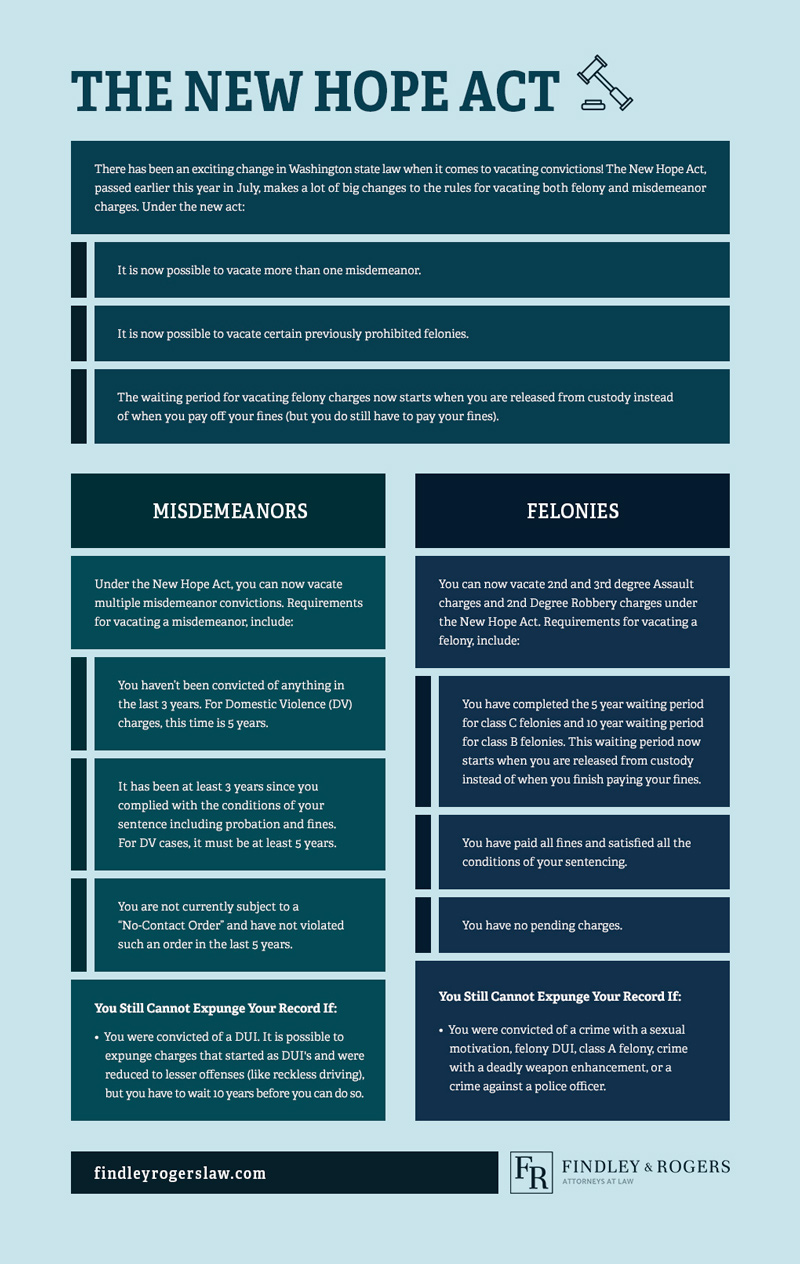

There has been an exciting change in how to expunge your record in Washington State. Earlier this year, the state legislature passed House Bill 1041, dubbed the “New Hope Act. ” On July 28, 2019, the law went into effect throughout Washington State and has rewritten the rules on vacating (also known as “expunging”) both felony and misdemeanor charges.
Here’s the bottom line: The Washington State New Hope Act makes three major changes to existing state law:

When it comes to expunging your record of misdemeanors in Washington State, it used to only be possible to vacate a single misdemeanor, and it had to be the most recent conviction on your record.
This was an unusual limitation, because there was never any limit on the number of felonies that could be vacated. This odd limit meant that those who had committed more serious crimes were in a better position for vacating their record than those who had committed less-serious ones.
The Washington State New Hope Act resolves this odd discrepancy. RCW 9.96.060 has been changed to allow a person to vacate any number of misdemeanors, provided you meet the eligibility criteria. The requirements to expunge your record under the new law include:
Despite these changes in how you expunge your record in Washington State, you still cannot vacate a conviction for Driving Under the Influence (DUI), and you still have to wait 10 years to vacate a charge that was originally filed as a DUI and then reduced. You also still cannot vacate a misdemeanor DV charge if you have more than one DV charge that came from separate incidents.
The New Hope Act makes it possible to vacate Second-Degree Robbery, Second-Degree Assault, and Third-Degree Assault charges, all of which used to be permanently prohibited as “Crimes Against Persons.” There are some limits, though. It is only possible to vacate these cases if the conviction did not involve a sexual motivation or a deadly weapon enhancement, and the crime was not committed against a police officer.
You also still have to wait 5 years after a Class C felony to vacate a conviction, and 10 years after a Class B felony. The Washington State New Hope Act does not change these waiting periods.
What has changed is that the waiting period starts from the date that you are released from custody. Previously the period began when you paid off your fines and satisfied all other conditions of your sentence (such as community service).
This new addition to record expungement in Washington State is a benefit to those with economic hardships who would have otherwise taken many years to pay off their fines. In the old system, anyone who needed 10 years to pay off their fines from a Class B offense effectively wouldn’t be able to vacate their case until 20 years after they were released!
The fines still have to be paid, though, even if the waiting period is up. And the offense will not be vacated until all conditions of the sentence are satisfied.
Please note, the Washington State New Hope Act doesn’t make any changes to the law regarding firearm rights or juvenile cases.
Want to learn more about expungement in Washington or start your expungement process? Contact the experienced attorneys at Findley & Rogers to learn more today!